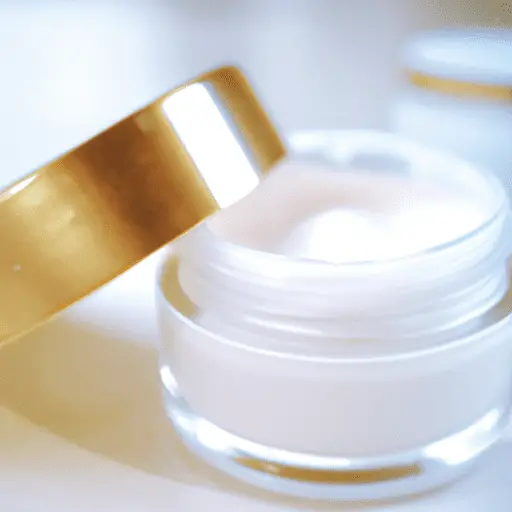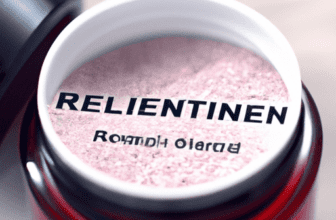The Importance of SPF in Skincare
-
Table of Contents
- The Importance of SPF in Skincare
- Key Takeaways
- Introduction: Unveiling the Power of SPF
- The Role of SPF in Skincare
- SPF: Not Just for Sunny Days
- Types of SPF Products
- FAQ Section
- 1. How often should I reapply sunscreen?
- 2. Can I skip sunscreen if my makeup has SPF?
- 3. Is a higher SPF always better?
- 4. Can I use sunscreen on my baby?
- 5. Does sunscreen expire?
- Conclusion: SPF – A Non-Negotiable Skincare Essential
- Key Takeaways Revisited
- References
The Importance of SPF in Skincare

[youtubomatic_search]
Key Takeaways
- SPF, or Sun Protection Factor, is a crucial component in skincare that protects the skin from harmful UV rays.
- Regular use of SPF can prevent premature aging, skin cancer, and other skin damage.
- SPF is not just for sunny days; it should be used daily, regardless of the weather.
- There are different types of SPF products, including physical and chemical sunscreens, each with their own benefits and drawbacks.
- Understanding the correct application and reapplication of SPF is essential for optimal protection.
Introduction: Unveiling the Power of SPF
Skincare is a vast field, with countless products and ingredients promising to deliver the best results. However, one ingredient stands out for its proven effectiveness and critical role in maintaining skin health: Sun Protection Factor (SPF). This article delves into the importance of SPF in skincare, highlighting its benefits, types, and proper usage.
The Role of SPF in Skincare
SPF is a measure of how well a sunscreen can protect the skin from harmful UVB rays, which are responsible for sunburn and contribute to skin cancer. According to the Skin Cancer Foundation, regular daily use of an SPF 15 or higher sunscreen reduces the risk of developing squamous cell carcinoma by about 40% and the risk of developing melanoma by 50%1.
Moreover, SPF plays a significant role in preventing premature aging. A study published in the Annals of Internal Medicine found that participants who used sunscreen daily showed 24% less skin aging than those who used it sporadically2. This is because SPF blocks UVA rays, which penetrate deep into the skin and cause wrinkles and age spots.
SPF: Not Just for Sunny Days
One common misconception is that SPF is only necessary on sunny days. However, UV rays can penetrate clouds and even glass, meaning your skin can be exposed even on cloudy days or when indoors. The American Academy of Dermatology recommends using a broad-spectrum sunscreen with an SPF of 30 or higher every day, regardless of the weather3.
Types of SPF Products
SPF products come in two main types: physical (or mineral) and chemical sunscreens. Physical sunscreens, containing ingredients like zinc oxide and titanium dioxide, work by sitting on top of the skin and deflecting UV rays. They are less likely to cause skin irritation, making them suitable for sensitive skin. However, they can leave a white cast on the skin.
On the other hand, chemical sunscreens absorb UV rays before they can damage the skin. They are usually more lightweight and invisible on the skin, but they can cause irritation or allergic reactions in some people. It’s important to choose the type that best suits your skin type and lifestyle.
FAQ Section
1. How often should I reapply sunscreen?
The general rule is to reapply sunscreen every two hours, or immediately after swimming or sweating.
2. Can I skip sunscreen if my makeup has SPF?
No, makeup with SPF is not enough to protect your skin. It’s still important to apply a separate sunscreen underneath.
3. Is a higher SPF always better?
Not necessarily. While a higher SPF provides more protection, the difference becomes negligible past SPF 50. The key is to apply enough sunscreen and reapply regularly.
4. Can I use sunscreen on my baby?
For babies under 6 months, it’s best to avoid sun exposure and use protective clothing. For older babies and toddlers, use a sunscreen suitable for children.
5. Does sunscreen expire?
Yes, sunscreen does expire. Check the expiration date on the bottle and discard it if it’s past this date.
Conclusion: SPF – A Non-Negotiable Skincare Essential
In conclusion, SPF is a non-negotiable part of any skincare routine. Its ability to protect the skin from harmful UV rays not only prevents sunburn but also reduces the risk of skin cancer and premature aging. Regardless of the weather or your indoor status, applying a broad-spectrum SPF 30 or higher every day is a small step that can lead to significant benefits for your skin health.
Key Takeaways Revisited
- SPF is a critical skincare ingredient that offers protection against harmful UV rays.
- Regular use of SPF can significantly reduce the risk of skin cancer and prevent premature aging.
- SPF should be used daily, regardless of the weather or whether you’re indoors or outdoors.
- Choosing between physical and chemical sunscreens depends on your skin type and lifestyle.
- Proper application and reapplication of SPF are key to ensuring optimal protection.
[youtubomatic_search]
References
- Skin Cancer Foundation. (2020). Skin Cancer Facts & Statistics. https://www.skincancer.org/skin-cancer-information/skin-cancer-facts/
- Hughes, M.C.B., Williams, G.M., Baker, P., & Green, A.C. (2013). Sunscreen and Prevention of Skin Aging: A Randomized Trial. Annals of Internal Medicine, 158(11), 781-790. https://doi.org/10.7326/0003-4819-158-11-201306040-00002
- American Academy of Dermatology. (2020). Sunscreen FAQs. https://www.aad.org/public/everyday-care/sun-protection/sunscreen-patients/sunscreen-faqs





